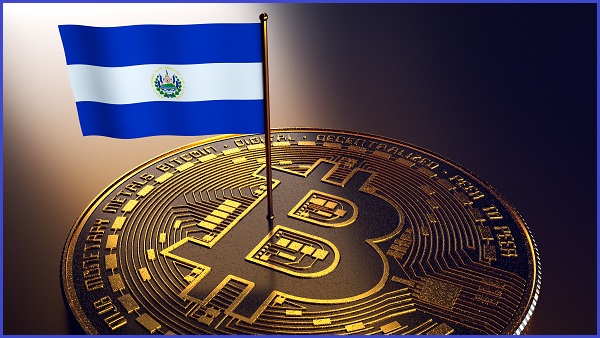El Salvador became the first country to accept bitcoin as legal tender on Tuesday in a controversial move that could signal broader mainstream adoption of cryptocurrency.
The country’s President Nayib Bukele first announced the plans to make bitcoin legal tender in June and, within days of announcing and circulating his radical bill, it passed the legislative assembly.
In just three months the country set the stage for Tuesday’s bitcoin revolution which saw the government release its Chivo Wallet, an app for sending and receiving bitcoin whose name is Salvadorean slang for ‘cool’.
El Salvadorians were encouraged to use the app which is linked in with the traditional banking system, allowing for easy exchange between bitcoin and US dollars along with cash withdrawals at certain ATMs.
Chivo’s release was plagued with technical problems on launch day, forcing the government to pull it offline to increase servers.
Bukele asked for “a little bit of patience” from his supporters on Twitter, as the populist leader celebrated a major victory for his administration’s economically transformative agenda.
People shared footage online of major international food and beverage chains like McDonald’s and Starbucks accepting bitcoin purchases – images suggesting the potential for bitcoin purchases to be integrated with the fast food giants’ systems elsewhere in the world
These would be enough to inspire hope for more real-world bitcoin use among cryptocurrency bears, yet El Salvador’s first day of bitcoin as an official currency triggered a rout in crypto markets.
Bitcoin, which had been holding steadily above the US$50,000 mark for days prior, took a nosedive first thing on Wednesday morning, shedding around US$5,000 in per-coin value in just one hour.
Other cryptocurrencies naturally followed suit, putting a dampener on a market that was finally gathering steam after May’s major crash.
But Bukele remained bullish, publicly announcing the country had bought 150 more bitcoins during the price dip, which brings the country’s total bitcoin holdings to 550, worth around $35 million at time of writing.
Protestors outraged
Not everyone is happy with the Bukele’s attempts to experiment with El Salvador’s economy, however.
As citizens began downloading the Chivo app on Tuesday, protesters hit the streets, setting off fireworks and torching a tire outside the Supreme Court before a strong police presence cause them to disperse, according to Reuters.
The decision, while signed off from Bukele’s favourable parliament, is not widely popular among the people, some of whom have said they simply don’t understand bitcoin, while others are concerned that the cryptocurrency adoption will broaden an already deep class divide in the relatively poor South American nation.
In August, a survey found 65.7 per cent of El Salvadorians opposed bitcoin as legal tender, with only 22.9 per cent saying they approved the change.
As fast food chains get to celebrate the inclusion of cryptocurrency to their asset portfolios, small businesses may also be left behind as they are faced with day-to-day operations.
Jorge Hasbún, President of El Salvador’s Chamber of Commerce, said he was recommending members – most of which are small and medium businesses – convert bitcoin straight into dollars to focus on paying suppliers and salaries.
“There is not a single person with whom I have spoken who tells me that they are going to keep the bitcoins,” he is quoted in El Salvador newspaper El Dario de Hoy as saying.
“Everyone will seek to convert them to dollars immediately and deposit them in a bank of the financial system.”
According to World Bank data from 2017 only around 34 per cent of El Salvadorians used the internet, while 29 per cent lived on less than US$5.5 dollars a day.
The International Monetary Fund (IMF) gave El Salvador US$389 million for pandemic relief in April 2020 and has since been considering a new financial program reportedly worth $1.3 billion.
Responding to El Salvador’s bitcoin intentions in June, IMF Director of Communications Gerry Rice said the fund was keeping a close eye on its cryptocurrency adoption.
“Adoption of bitcoin as legal tender raises a number of macroeconomic, financial and legal issues that require very careful analysis,” he said.
Positive change
El Salvador is in an interesting position as a country that, until this week, it was entirely reliant on the US dollar for its local currency. As such, it can’t print its own money and can be heavily affected by US monetary policy.
Bitcoin offers a similar situation for El Salvador – in the sense that it is not controlled internally – but without the network doesn’t have the same political influence on an international central bank as the US dollar does, since the cryptocurrency’s supply is hard-coded.
Nigel Green, chief executive and founder of deVere Group, said he thought the move to bitcoin has numerous positive ramifications for the country.
“Central banks around the world have been devaluing their currencies,” he said.
“Bitcoin’s supply is not only limited, but new coins are mined at a decreasing rate too. El Salvadorans could, therefore, find their new adopted currency gives them more purchasing power when they buy from overseas.
“By diversifying the nation’s dollar reserves into the cryptocurrency, there could be additional opportunities to earn yield, meaning the size of the reserves would grow.
“And El Salvador could benefit from significant foreign investment and capital inflows as digital asset organisations are likely to relocate to the Bitcoin-friendly nation.”










